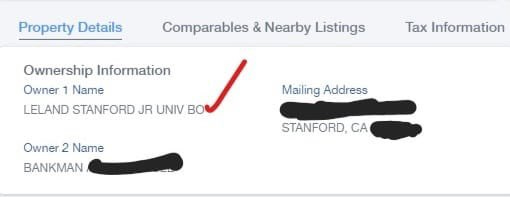FTX Drama goes Big 🤯; The Binance stress test 🪙; BNPL is dead. Long live BNPL! 💸
You're missing out big time... Weekly Recap 🔁
👋 Hey, Linas here! Welcome back to the final 🔓 weekly free edition 🔓 of my daily newsletter this year. Each day I focus on 3 stories that are making a difference in the financial technology space. Coupled with things worth watching & most important money movements, it’s the only newsletter you need for all things when Finance meets Tech.
If you’re not a subscriber, here’s what you missed this week:
Walmart is building a Super App than can change FinTech forever 📲
FinTech champion Wise is one step closer to becoming a bank 😳🏦
Mastercard may have lost Africa. Africa’s growth story will probably be told by Visa 🤯
Top FinTech stories of 2022, a year like no other 🌊 [a brief recap of 2022]
As for today, here are the 3 FinTech stories that were making a massive difference this week. It was one of the hottest and most fascinating weeks this year so far, so definitely check out all the above stories.
FTX Drama goes Big 🤯
The news 🗞 Just when I thought we were done with the FTX and there will be no new major developments this year, it hit us again. So let’s take a final recap of the latest moves in the FTX drama.
More on this 👉 Here are the key new revelations you must know and cannot miss:
It’s all connected 🕸 Alameda Research had invested a total of $400M into a company called Modulo Capital. Though this amounted to one of Bankman-Fried’s largest venture capital bets, Modulo’s identity was a mystery. It now appears it was a multi-strategy hedge fund founded early this year by 2 former Jane Street traders and one developer, a person familiar with the matter told CoinDesk. For context, Jane Street is a New York-based proprietary trading firm where Bankman-Fried and Ellison worked prior to making it big in the crypto industry. Bankman-Fried was known to hire former Jane Street employees as executives or employees, including former FTX US President Brett Harrison. The crazy part? Modulo was based in the Bahamas and operated from Albany, the same luxury condominium where SNF, FTX, and Alameda employees resided. You can’t make this up 🤦
Cash-rich? 🤑 FTX’s new management told a procedural hearing on Tuesday that it had over $1B in assets identified. The company located about $720M in cash assets, which the exchange has yet to consolidate, in U.S. financial institutions authorized to hold funds by the U.S. Department of Justice. Another nearly $500M is already being held in U.S. institutions. Well, at least some creditors will be paid back…
Fake money 👀 FTX used its own token, FTT, to fund the $84M purchase of a majority stake in the trading platform Blockfolio in 2020, Bloomberg reported. Around 94% of the amount was in the token invented by FTX, according to the report, which cited financial documents. The deal gave FTX a 52% stake in the trading platform. That tells all you need to know about this Ponzi 🤡
Guilty 🫡 Two of SBF's closest business associates have pleaded guilty to federal fraud charges — and are now cooperating with the Department of Justice's investigation. Caroline Ellison is the former CEO of Alameda Research — FTX's sister trading firm — which has been accused of misusing billions of dollars in customer funds. And Gary Wang is the co-founder of the now-bankrupt exchange. Ellison has pleaded guilty to two counts of wire fraud — as well as five counts of conspiracy to commit wire fraud, securities fraud, and commodities fraud. The total maximum sentence she could face for these charges is 110 years in prison. Wang has pleaded guilty to one count of wire fraud and three counts of conspiracy to commit wire fraud, securities fraud, and commodities fraud — all of which could carry a total maximum sentence of 50 years. Both have signed a document pledging to "truthfully and completely disclose all information concerning all matters" to the U.S. attorney, the FBI, and agencies. The U.S. Securities and Exchange Commission has also charged Ellison and Wang for their roles in a "multi-year scheme to defraud equity investors in FTX."
Walking away again? 🤯 SBF was extradited from the Bahamas and appeared in U.S. federal court in New York on Thursday. Just while everyone was thinking justice will finally be served…
the former CEO of FTX was told he can live with his parents on $250 million bail secured by their Palo Alto house 🤷♂️ It’s important to note that neither Bankman-Fried nor his parents were required to put up the full amount of the bond. It is sufficient to secure a bond with assets amounting to 10% of the total bond amount. Nevertheless, $25M is still a solid sum. Could be returned to defrauded customers…
What’s interesting here is that Stanford is listed as an owner of the house pledged for SBF's $250M bond. I guess everyone has to work for the common good, right?
Flying home for Christmas🎄 Shortly after that, SBF was spotted at JFK airport last night in the AA Business Class lounge:
And now he’s flying home for Christmas first class after stealing $10 billion. SBF is the ultimate Crypto Grinch.
✈️ THE TAKEAWAY
Will this ever end? 🤔 It’s hard to say anything else beyond all that was said already. 2022 will definitely go down in history as the year of fraud (remember Terra, Celcius, 3AC…), and FTX will be the king of it all. What’s happening with SBF right now does not make any sense but I do believe that justice will be served. It has to be.
Go deeper and learn more: The FTX story just keeps getting crazier 😳 (+5 bonus reads)
The Binance stress test 🪙
The news 🗞 As I’ve covered last week, following the arrest of former FTX founder Sam Bankman-Fried (SBF), Binance, the largest crypto exchange in the world, came under the massive spotlight which has led to them experiencing an influx of withdrawal requests from nervous investors.
More on this 👉 At one point during last week, the exchange handled over $3 billion in withdrawals over a 24-hour period. Yet, it wasn’t enough to spook Binance CEO Changpeng Zhao, who said that the exchange has experienced worse days, and that money was already flowing back into the exchange.
And indeed, the biggest crypto exchange in the world seems so far to have succeeded in handling over $10B in customer withdrawals without any serious glitches. This should help reduce the FUD and hopefully will serve as a valuable lesson not only for Binance but for the crypto industry in general.
Let’s briefly look at the latter.
✈️ THE TAKEAWAY
Lessons to learn 🧠 First and foremost, a Binance collapse isn’t impending. And that’s super critical because otherwise, it could lead to a massive Armaggedon. Yet, the FTX scandal is providing a valuable opportunity for the exchange, and any other crypto firms, to learn about the controls and risk-mitigation tools they should have in place to appease regulators and keep investors safe. From now on, compliance and regulations should be a top priority and the ultimate building blocks for the next generation of crypto. Finally, it’s also giving a lesson on transparency and trust and how cooking the books, or not keeping any books at all, doesn’t make for good reading.
Bonus: Is Binance having an FTX moment? 🤯🤯🤯
Bonus: Binance wants to be your Crypto Bank 🏦
BNPL is dead. Long live BNPL! 💸
The news 🗞 Two pieces of news on the same trend. It’s again about Buy Now, Pay Later and the companies under the spotlight today are SoFi SOFI 0.22%↑ and Worldline.
More on this 👉 Let’s start with the US-based online personal finance company and bank SoFi. It has partnered up with payments giant Mastercard MA 0.58%↑ to develop its Buy Now, Pay Later (BNPL) initiative.
This partnership will offer customers the possibility to use the Pay in 4 feature anywhere the card is accepted across the US. SoFi’s take on the buy now pay later fray lets its users split purchases that range from $50-$500 into 4 separate payments, with zero interest, as a feature of the Mastercard Instalments programme.
The company launched Pay in 4 and it is available to customers purchasing with SoFi Checking and Savings programme. It is also being rolled out to select users in the following weeks.
Then came Worldline. Global FinTech focusing on payments services has launched its in-house BNPL service to satisfy the increasing customer demand in the travel sector for BNPL products. The company has hence partnered with travel payment provider Fly Now Pay Later, with the service being available through Worldline’s existing TravelHub payment solution.
✈️ THE TAKEAWAY
What does this mean? 🤔 Let’s look at this first from Mastercard’s & Fly Now, Pay Later’s perspectives. And it clearly shows that B2B BNPL > B2C BNPL. As it has been said earlier, the B2B payments market is huge and much bigger than its B2C counterpart. Given its accelerated transition to digital over the past couple of years as well as considering that the B2B e-commerce market is also larger than B2C, it’s clear what companies like Mondu are after (so as Playter, Hokodo, Billie, Tranch, to name just a few). Furthermore, B2B BNPL is believed to be a $200B opportunity just in Europe and the US, which is already bigger than the global consumer BNPL market. Given that the market is currently underserved by existing offerings, this could actually be the next big driver in the BNPL market globally. Looking at the big picture, this goes on to show again that BNPL is far from being dead. You can’t build a sustainable business on it alone, but if you don’t have a BNPL strategy as part of your roadmap you are definitely going to miss out.
Bonus: If you don't have a BNPL strategy, you're missing out 🫵
Affirm offers a profitability strategy that other BNPL FinTechs should steal 👏
The real winner of the BNPL Wars is…Mastercard? 🤔
🔎 What else I’m watching
Crypto in Nigeria🇳🇬 A new bill in Nigeria will recognize cryptocurrency as capital investment. It's the latest twist in a national crypto policy that has swung many ways over recent years. For the perspective, back in 2017, Nigeria banned financial institutions from allowing crypto transactions. I hope sanity will prevail. Reread: Africa will be the driving force for cryptocurrency adoption globally 🚀
Buying up 💸 Binance.US has reportedly agreed to buy bankrupt crypto lender Voyager Digital’s remaining crypto assets for $1.022B. Voyager announced the deal on Monday, adding the deal “aims to return crypto to customers in kind” if approved by the bankruptcy court in January. Earlier this year, now defunct crypto exchange FTX agreed to pay $1.4B to acquire Voyager’s assets, beating out rivals Wave Financial and Binance in an auction. Separately, the parent Binance finalized its acquisition of Indonesian crypto trading firm Tokocrypto, the first crypto asset trader that is regulated by the country's commodity regulator. More consolidation and quest for Binance to be your Crypto Bank 🏦
💸 Following the Money
Blockchain Capital led a $15M round into Blocknative, a crypto infrastructure firm that builds blocks on the Ethereum network.
NFT infrastructure protocol Decent raised a $3.5M round, The Block reported exclusively.
London Stock Exchange Group is to acquire Acadia, a provider of automated margin processing and integrated risk services for uncleared derivatives.
👋 That’s it for today! Thank you for reading and have a great week ahead! And if you enjoyed this newsletter, invite your friends and colleagues to sign up:









